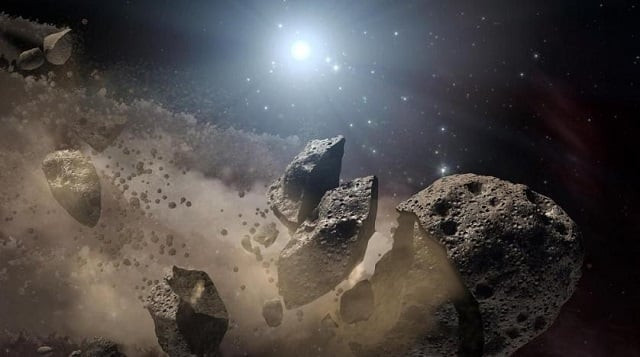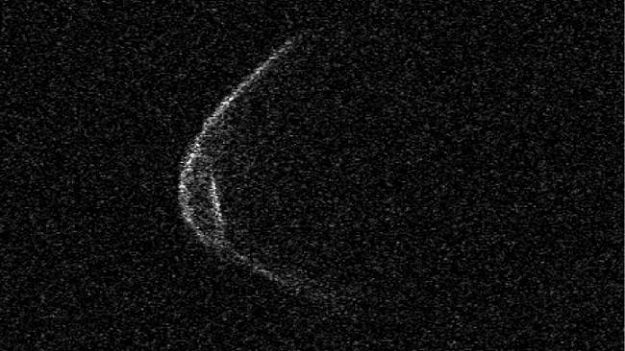A huge asteroid will safely pass by Earth on Wednesday
The gigantic asteroid 1998 OR2 will pass by within 6.3 million kilometers of our planet on April 29

A NASA artist's concept of a broken-up asteroid. PHOTO: REUTERS
However, there is no reason to worry because the asteroid will not even come close to striking Earth.
The gigantic asteroid 1998 OR2 is one of the brightest and largest potentially dangerous asteroids out there but it will be passing 3.7 million miles/6 million km from Earth.
 The Arecibo Observatory in Puerto Rico captured this radar image of the big asteroid 1998 OR2 on April 17, 2020. The asteroid will fly by Earth at a distance of 3.9 million miles (6.3 million kilometers) on April 29. PHOTO: Arecibo Observatory
The Arecibo Observatory in Puerto Rico captured this radar image of the big asteroid 1998 OR2 on April 17, 2020. The asteroid will fly by Earth at a distance of 3.9 million miles (6.3 million kilometers) on April 29. PHOTO: Arecibo ObservatoryNASA keeps a close watch on near-Earth objects even if impact is unlikely. The 1998 OR2 asteroid will be about 16 times farther from us than the moon is from the Earth.
NASA employees to work from home due to coronavirus
"There are no asteroids which have any significant chance of hitting the Earth that is of any significant size," said Paul Chodas, manager of NASA's Center for Near-Earth Object Studies at the agency's Jet Propulsion Laboratory in Pasadena, California, said during a pre-recorded "NASA Science Live" webcast on April 27.
"There are none on our list."
NASA scientists think they have discovered and tracked more than 90% of the near-Earth asteroids (NEAs) that are least 1 km wide, large enough to pose a global threat to humans.
Hubble telescope celebrates 30th year in space
There are plenty of NEAs out there, so some big dangerous ones may still lurk out there undetected, said both Chodas and Lindley Johnson, NASA's Planetary Defense Officer and program executive of the Planetary Defense Coordination Office.
"Impact of the Earth by an asteroid large enough to do damage at the surface is an extremely rare event, but it's an inevitable event," Johnson said during today's webcast.
Asteroids tend to get pushed away by the gravitational pulls of other objects which makes it difficult to sustain their orbits over a long period of time.
Hence when given enough time these asteroids will eventually send a big space rock screaming toward Earth.


















COMMENTS
Comments are moderated and generally will be posted if they are on-topic and not abusive.
For more information, please see our Comments FAQ